Missing Letters Worksheets for Ages 4-7
6 filtered results
-
From - To
Discover our engaging Missing Letters Worksheets designed for kids aged 4-7! These delightful and educational resources help children identify and fill in missing letters of the alphabet, strengthening their understanding of letter sequences and alphabetic order. Through fun and colorful activities, young learners boost their spelling, reading, and overall literacy skills. Ideal for both classroom and at-home learning, these worksheets support early literacy development in an interactive and exciting way. Give your child a head start on their literacy journey with our expertly crafted Missing Letters Worksheets!
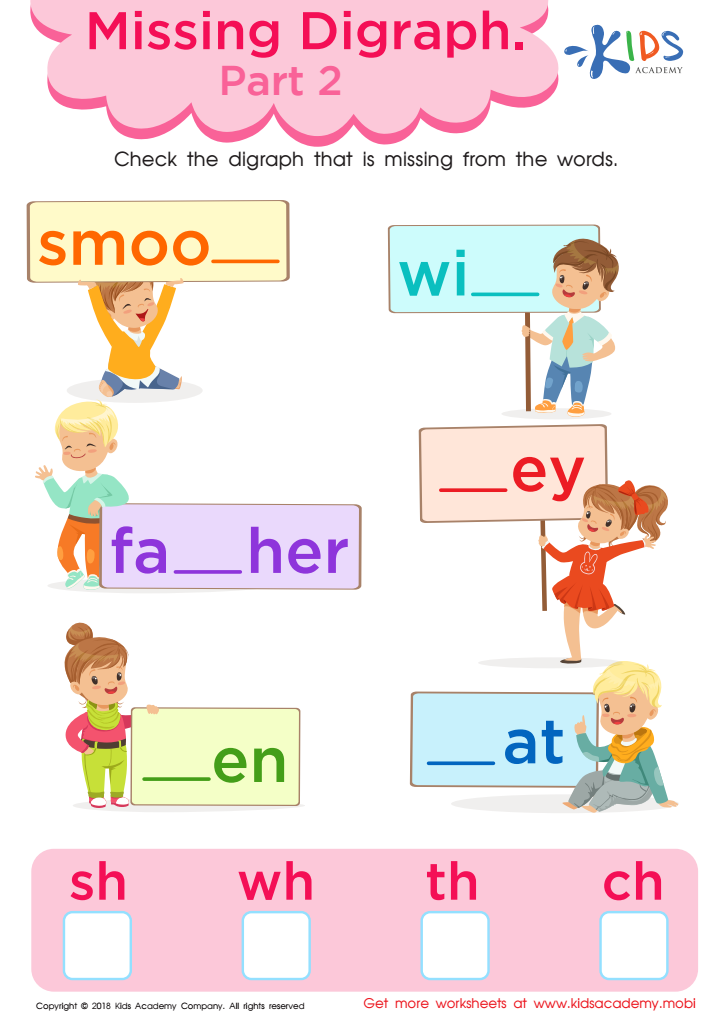

Missing Digraph: Part 2 Worksheet
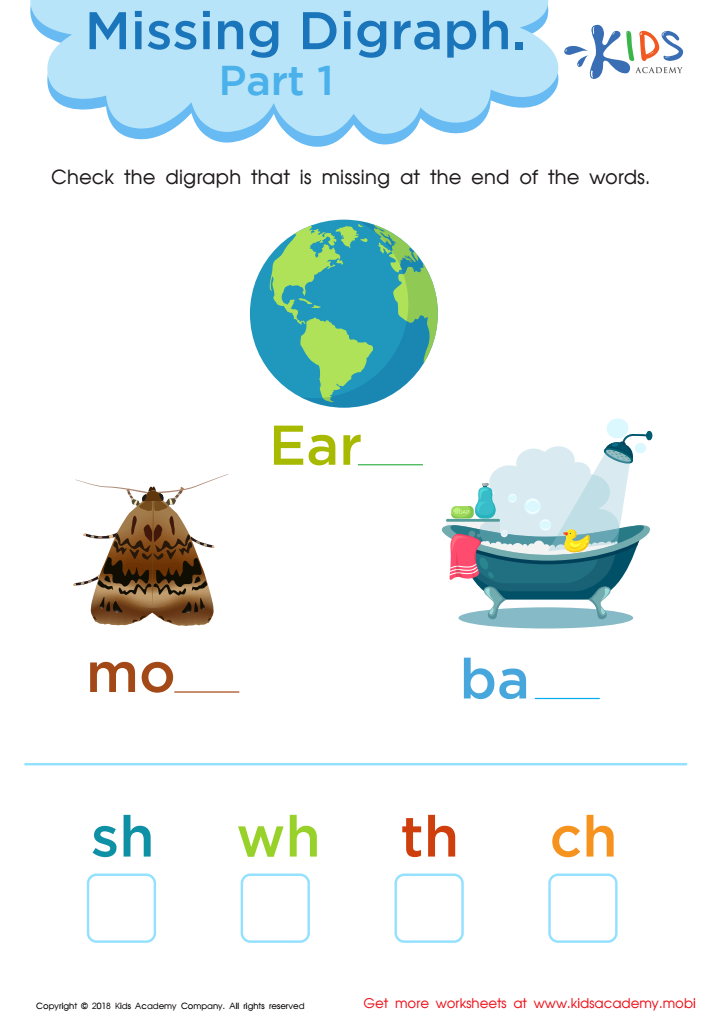

Missing Digraph: Part 1 Worksheet
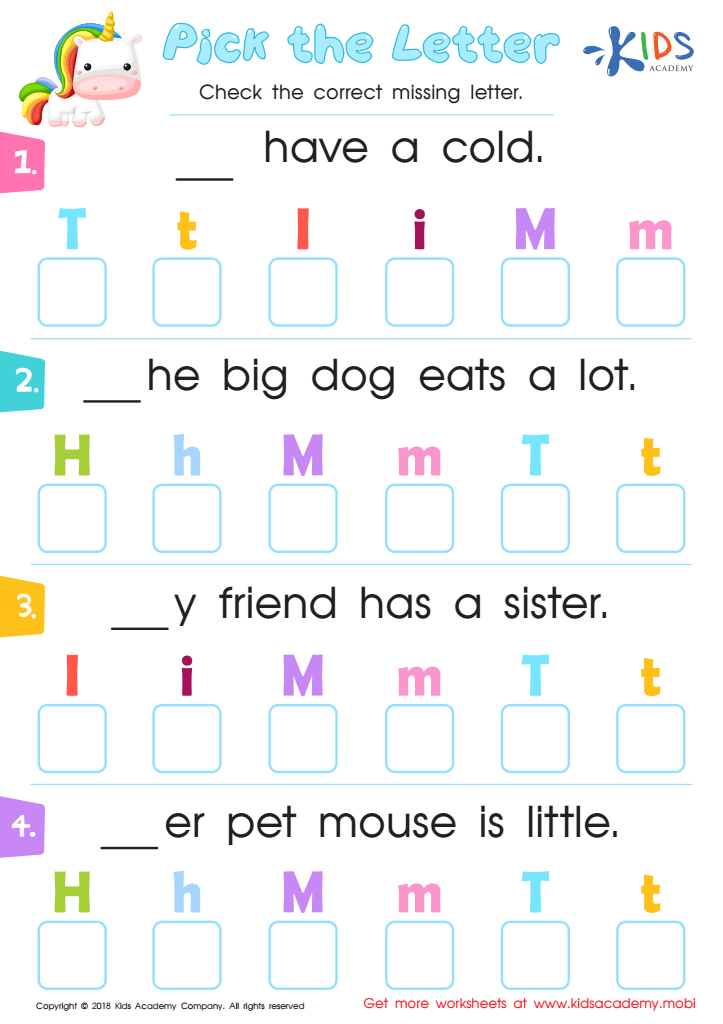

Pick the Letter Worksheet
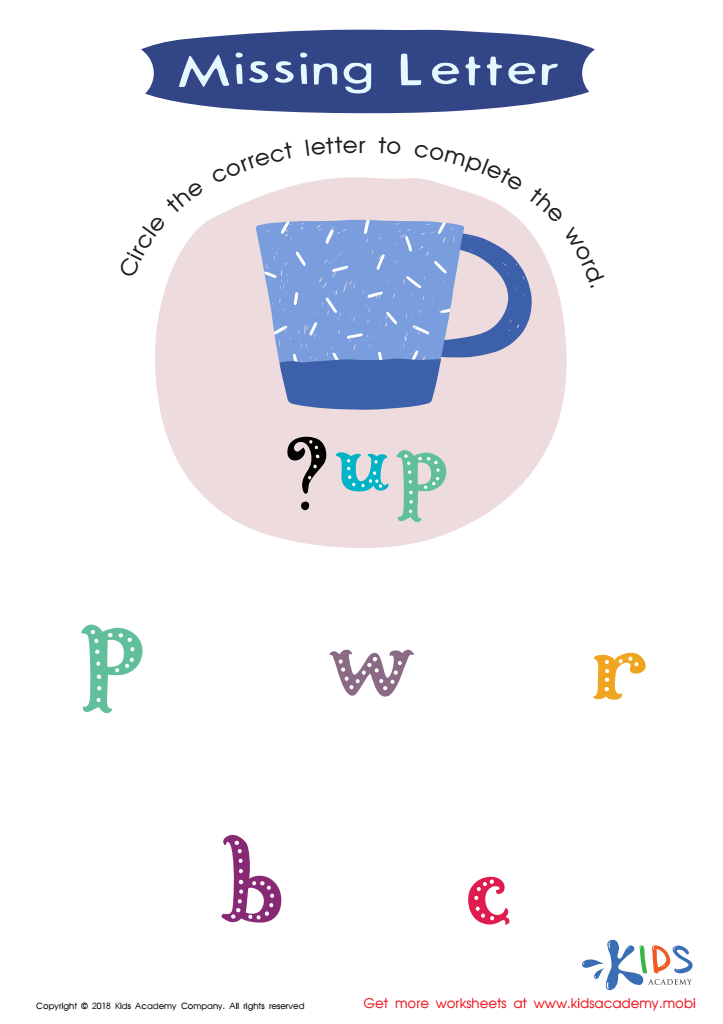

Missing Letter Worksheet
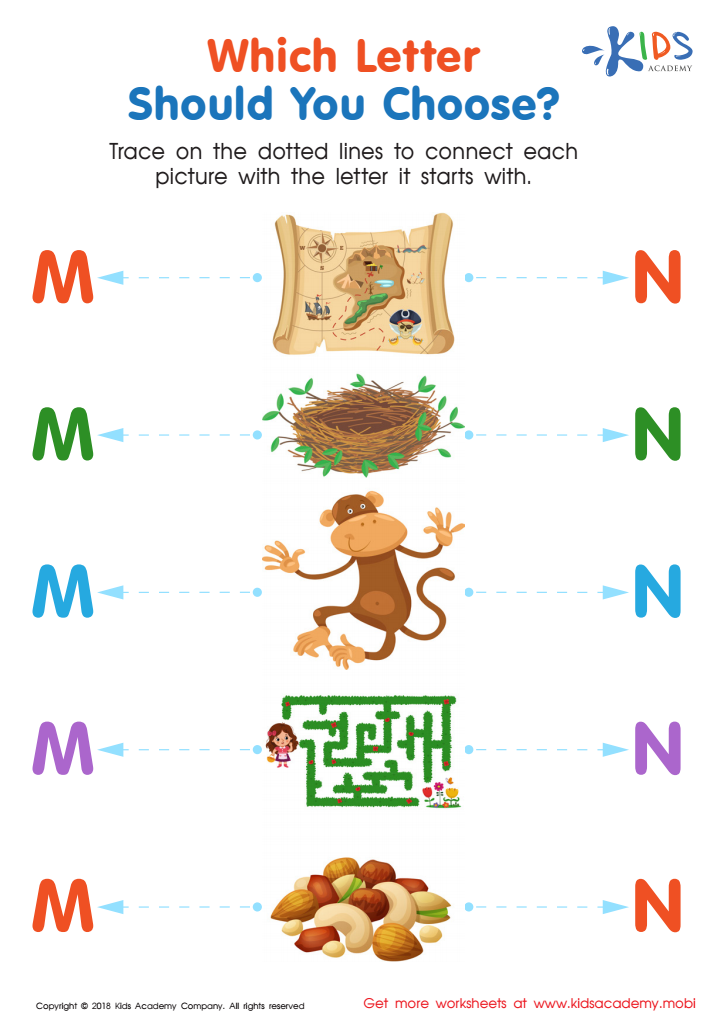

Which Letter Should you Choose? Worksheet
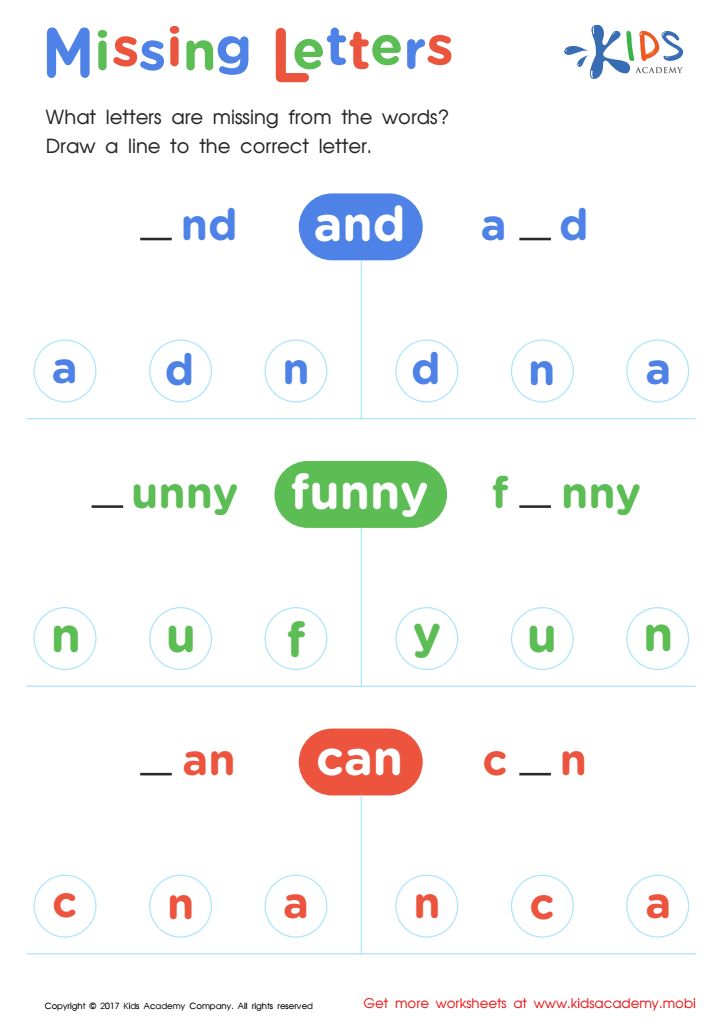

Missing Letters Worksheet
Parents and teachers should care about missing letter activities for children aged 4-7 because these exercises are fundamental in developing crucial literacy skills. During these early years, children are in a critical period of language acquisition, where their brains are highly receptive to learning phonics, vocabulary, and word structures. Missing letter activities engage children in recognizing patterns, sounds, and the basic building blocks of words in a fun and interactive way.
These exercises can enhance a child's ability to understand and decode language, laying a robust foundation for future reading and writing proficiency. As they identify the missing letters in words, children improve their phonemic awareness, which is the ability to hear, identify, and manipulate individual sounds in spoken words—a crucial skill for reading.
Moreover, activities like these promote critical thinking and problem-solving skills. They require children to think about what they know about letters and sounds and apply this knowledge contextually, fostering cognitive growth.
Engaged in these exercises, children also boost their confidence as they master each new word, encouraging a sense of achievement and a positive attitude toward learning. Teachers and parents supporting these activities are investing in their children's educational journey, ensuring they have the foundational skills necessary for lifelong learning and academic success.

 Assign to My Students
Assign to My Students
















